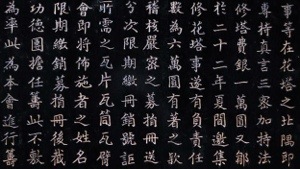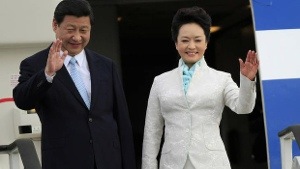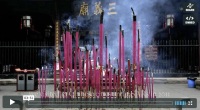So it seems to wearing made in China is fine, or eating out of plates made there does not require too much afterthought. However, using their information infrastructure and equipment to send messages from A to B – requires an ideological leap of faith for some.
Well, it’s not quite time to chuck away the image of China simply being the world’s factory of cheap and good, where excellent margins to those willing to leverage the Chinese model are the key draw. Today, they’re moving up the food chain and it will be a mistake not to take notice.
The land down under is seeing an increasing number of rising China’s foreign vanguard of products tested with the Aussie market prior to going global. This even includes the Great Wall make of SUV and Utility Vehicles.
Rewind – a year back Huawei was barred from tendering for Australia’s National Broadband Network based on intelligence and cyber espionage concerns. See China hits back at NBN bid rejection (The Age, March 29, 2012)
Fast forward a year and check out how Huawei has responds in the 7.5min video accompanying the article – with ABC’s China correspondent Stephen McDonell.
– Over in the UK – Huawei has become embedded into UK telecoms infrastructure [Financial Times] – June 6, 2013
– Can it look any more ominous than this (see photo below)? Inside The Chinese Company America Can’t Trust [Time Magazine] – April 15, 2013

Source – DOMINIC NAHR / MAGNUM FOR TIME
myth of photographic truth exploited to paint a sinister Huawei
That said, it is probably useful to get a clearer picture of what Huawei does:
To read a perspective of Huawei Its annual revenue is more than $35 billion. It is the world’s largest telecom equipment maker. Huawei components feature in networks serving one-third of the world’s population… Huawei is not really a manufacturing company. It makes some of its most sensitive equipment, but it contracts out most routine manufacturing. Just under half – 70,000 – of its staff are directly involved in research and development. It has sought 55,000 patents and been granted 30,000 of them. Thirty thousand of its employees worldwide are non-Chinese. It is really a giant R&D, design, marketing and brand company. A questionable risk to security – Huawei an extraordinary creation (The Australian, May 18, 2013)
See also from WC //
Huawei a victim of its success [China Daily] – May 26, 2013
Huawei calls US Congress report ‘China bashing’ [AFP/Sydney Morning Herald] – October 8, 2012
– – –
Chinese telco Huawei tries to shake off spy image after NBN ban
By China correspondent Stephen McDonell
Source – ABC News Australia, published June 10, 2013
The Chinese company blocked from working on Australia’s National Broadband Network has set its sights on shaking off its image as a stalking horse for Chinese spies.
Telecommunications giant Huawei was banned from tendering for the network as Australia followed the lead of a similar government ban in the United States due to espionage fears.
The company, based in southern China’s Shenzhen province, has refuted claims by the US House Intelligence Committee that the company could potentially build so-called “backdoors” into the likes of the NBN to allow for Chinese eavesdropping.
Filed under: ABC News, Advertising, Australia, Beijing Consensus, Charm Offensive, China Dream, Chinese Model, Communications, Cyberattack, Democracy, Domestic Growth, Economics, Finance, Government & Policy, Great Firewall, Greater China, History, Ideology, Influence, Infrastructure, Intellectual Property, International Relations, Internet, Mapping Feelings, Media, military, Modernisation, Peaceful Development, Politics, Population, Public Diplomacy, Reform, Resources, Social, Soft Power, Strategy, Tao Guang Yang Hui (韬光养晦), Technology, The Chinese Identity, The construction of Chinese and Non-Chinese identities, Trade, U.K., U.S.















The Sharing Circle